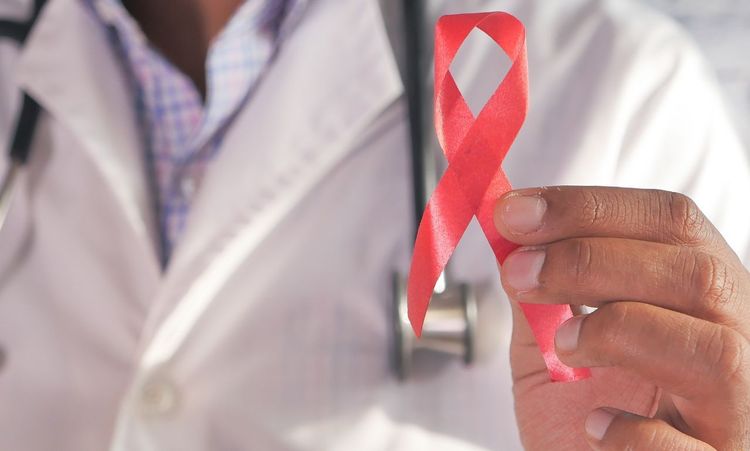Human Immunodeficiency Virus (HIV) remains a global health concern despite significant advancements in its management. Effective strategies for managing HIV require comprehensive approaches involving medical treatments, lifestyle modifications, psychological support, and preventive measures. By understanding and implementing these strategies, individuals living with HIV can significantly improve their health outcomes, prolong life expectancy, and maintain a high quality of life.
Understanding HIV: An Overview
Before exploring management strategies, it is essential to clearly understand HIV. HIV is a virus that attacks and weakens the immune system, specifically targeting CD4 cells (T cells), crucial for immune response. Without effective treatment, HIV can progress to Acquired Immunodeficiency Syndrome (AIDS), characterized by severe immunosuppression and vulnerability to opportunistic infections.
Importance of Early Diagnosis
Early detection of HIV is crucial for successful management. Individuals diagnosed early benefit from timely initiation of antiretroviral therapy (ART), leading to better health outcomes, reduced viral load, minimized risk of transmission, and prolonged life expectancy.
Antiretroviral Therapy (ART): The Foundation of HIV Management
Antiretroviral therapy is the cornerstone of HIV management. It involves using a combination of medications designed to suppress viral replication and maintain immune function.
Initiating ART Treatment
Initiating ART early after diagnosis is highly recommended. Guidelines from leading health organizations, such as the World Health Organization (WHO) and the Centers for Disease Control and Prevention (CDC), emphasize immediate ART initiation regardless of CD4 count or clinical stage.
Adherence to Medication
Adherence to ART medications is critical. Skipping doses can result in viral resistance, making the virus harder to control. Strategies for enhancing adherence include:
- Setting daily reminders or alarms
- Utilizing pillboxes to organize medications
- Using mobile applications designed for medication tracking
- Regular counseling and support from healthcare providers
Monitoring Treatment Efficacy
Regular clinical monitoring through blood tests for CD4 cell count and viral load is crucial to evaluate treatment effectiveness and adjust medications if necessary. Consistent monitoring ensures early detection of potential issues such as drug resistance or treatment failure.
Lifestyle Strategies for Managing HIV
Beyond medical treatment, lifestyle choices play a significant role in managing HIV effectively. Adopting healthy habits can significantly improve immune function and overall well-being.
Nutritional Management
Good nutrition supports immune health and combats HIV-related complications. Dietary recommendations include:
- Balanced diets rich in fruits, vegetables, lean protein, whole grains, and healthy fats
- Limiting processed foods, sugars, and saturated fats
- Ensuring adequate hydration and micronutrient intake
Nutritional counseling by dietitians can tailor dietary advice to the individual's specific needs, improving overall health outcomes.
Physical Activity and Exercise
Regular physical activity enhances physical and mental health, improves immune function, and reduces stress. Beneficial activities include:
- Moderate aerobic exercise, such as walking, cycling, or swimming, for at least 150 minutes per week
- Strength-training exercises to maintain muscle mass
- Flexibility exercises like yoga to reduce stress and improve mobility
Avoidance of Harmful Substances
Reducing or eliminating harmful substances is crucial for overall health. Substance abuse, including excessive alcohol consumption, smoking, or recreational drug use, may compromise immune function and interact negatively with ART medications.
Psychological and Emotional Support
HIV diagnosis can cause significant emotional distress. Psychological support services are critical in managing the emotional and mental health aspects of living with HIV.
Counseling and Therapy
Counseling, psychotherapy, and support groups provide emotional support and coping mechanisms. Cognitive Behavioral Therapy (CBT), for instance, effectively addresses anxiety, depression, and stress related to living with HIV.
Managing Stigma and Discrimination
Stigma and discrimination associated with HIV remain major challenges. Effective strategies include:
- Educating oneself and others about HIV
- Connecting with supportive community networks or advocacy groups
- Developing personal resilience through counseling and social support networks
Preventing Opportunistic Infections and Co-Morbidities
Individuals living with HIV are at increased risk of opportunistic infections and co-morbid conditions. Prevention strategies are essential components of comprehensive HIV management.
Vaccination and Preventive Measures
Routine vaccinations protect against common infections such as influenza, pneumococcal pneumonia, hepatitis B, and human papillomavirus (HPV). Additionally, preventive measures include:
- Maintaining good hygiene practices
- Regular screenings for tuberculosis (TB), sexually transmitted infections (STIs), and cancers
- Early treatment of infections to prevent complications
Regular Health Screenings and Preventive Care
Regular healthcare visits facilitate early detection and treatment of HIV-related complications and other health conditions. Recommended screenings include regular cardiovascular assessments, liver and kidney function tests, diabetes screening, and mental health evaluations.
Sexual Health and Transmission Prevention
Managing sexual health is essential to reducing HIV transmission risk and ensuring overall well-being.
Practicing Safer Sex
Consistent use of condoms significantly reduces the risk of HIV transmission and other STIs. Communication between partners about HIV status and prevention strategies also plays a critical role in minimizing risks.
Pre-Exposure Prophylaxis (PrEP) and Post-Exposure Prophylaxis (PEP)
PrEP and PEP are preventive interventions that reduce HIV acquisition risk:
- PrEP involves daily medication taken by HIV-negative individuals at high risk to prevent infection.
- PEP is a short-term treatment initiated within 72 hours following potential exposure to HIV, significantly reducing infection risk.
Social and Community Support Systems
Social support significantly contributes to effective HIV management by providing emotional comfort, practical assistance, and encouragement.
Peer Support Networks
Peer support networks create community among individuals experiencing similar challenges. Support groups offer platforms for sharing experiences, resources, and emotional support.
Family and Community Engagement
Active involvement of family and community enhances emotional well-being, reduces stigma, and supports adherence to treatment. Family education programs facilitate supportive environments conducive to health management.
Financial and Logistical Considerations
Navigating healthcare systems, medications, and ongoing treatment can be financially and logistically challenging. Addressing these issues proactively ensures consistent care and treatment adherence.
Accessing Affordable Treatment
Several governmental and non-governmental programs provide assistance for medication costs and healthcare access. Individuals should explore local and national programs designed to alleviate financial burdens.
Organizing Healthcare Management
Effective healthcare management involves establishing clear schedules for medical appointments, prescriptions, and follow-up care. Utilizing digital tools or physical calendars can help individuals stay organized and prevent lapses in treatment adherence.
Conclusion: Integrating Strategies for Optimal Outcomes
Effective HIV management involves comprehensive strategies integrating medical treatment, lifestyle management, psychological support, preventive measures, and social support systems. Embracing these strategies empowers individuals living with HIV to achieve optimal health outcomes, improved quality of life, and prolonged life expectancy. Ongoing education, adherence to treatment protocols, and strong support networks collectively play pivotal roles in successfully managing HIV.




